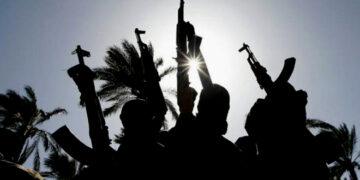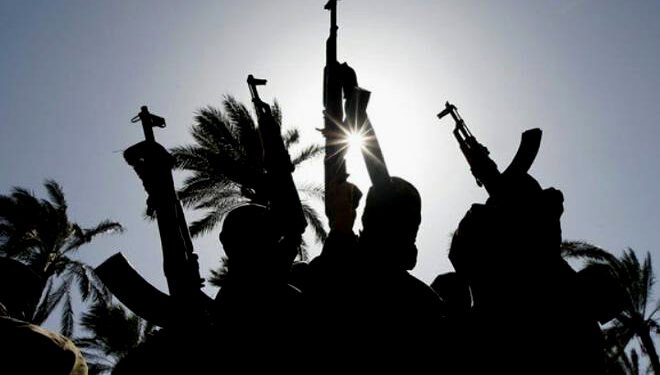By John Ikani
A deadly assault on a Chadian military base left at least 40 soldiers dead on Sunday night, as confirmed by the presidency.
In response, President Mahamat Déby directed a counter-mission to pursue those responsible, as shared in an official statement.
The attack reportedly took place on Barkaram Island, a sprawling marshland that was once submerged by Lake Chad’s waters, which have dramatically receded in recent decades.
Though no suspects were identified in the official statement, the incident took place near the Nigerian and Nigerien border regions, where Islamist militants are known to be active.
The United Nations reports that persistent violence by armed groups in the region has forced over 220,000 people from their homes, exacerbating an already severe humanitarian crisis.
This attack marks one of the most significant losses for Chad’s military since 2020, when nearly 100 soldiers were killed in a raid that led then-President Idriss Déby to launch a major offensive against Islamist groups.
Witnesses told AFP they believe Boko Haram militants, a Nigerian Islamist group, may have been behind the attack. Sources say approximately 200 soldiers were stationed at the garrison when it was hit.
Reports indicate that the attackers seized ammunition and equipment before retreating, AFP added.
For President Déby, a trained elite soldier and the son of Chad’s former president who was killed three years ago in combat with rebels, the assault represents a critical challenge.
Public statements from the Chadian presidency describe Déby as a hands-on leader, who visited the site early Monday to “survey the situation, pay respects to the fallen, show support for the wounded, and boost the morale of his troops.”
The Lake Chad region, surrounded by Cameroon, Chad, Niger, and Nigeria, is under the watch of a Multinational Joint Task Force committed to curbing armed group operations.
However, the International Crisis Group notes that armed groups “frequently regroup when forces withdraw,” and stresses that increased funding and planning are crucial for effective regional security.
Military coups have unfolded across neighboring nations in recent years, including Niger, Mali, and Burkina Faso, where militaries cited challenges in countering militant groups as reasons for taking over from civilian governments.
Chad, meanwhile, has maintained its partnerships with Western allies while also seeking closer ties with Russia, a move that has stirred tensions with both France and the U.S., writes analyst Paul Melly.
Chad is reportedly a major route for weapons into Sudan, though officials deny this. The country is also accommodating large numbers of Sudanese refugees in camps along its eastern border.




































